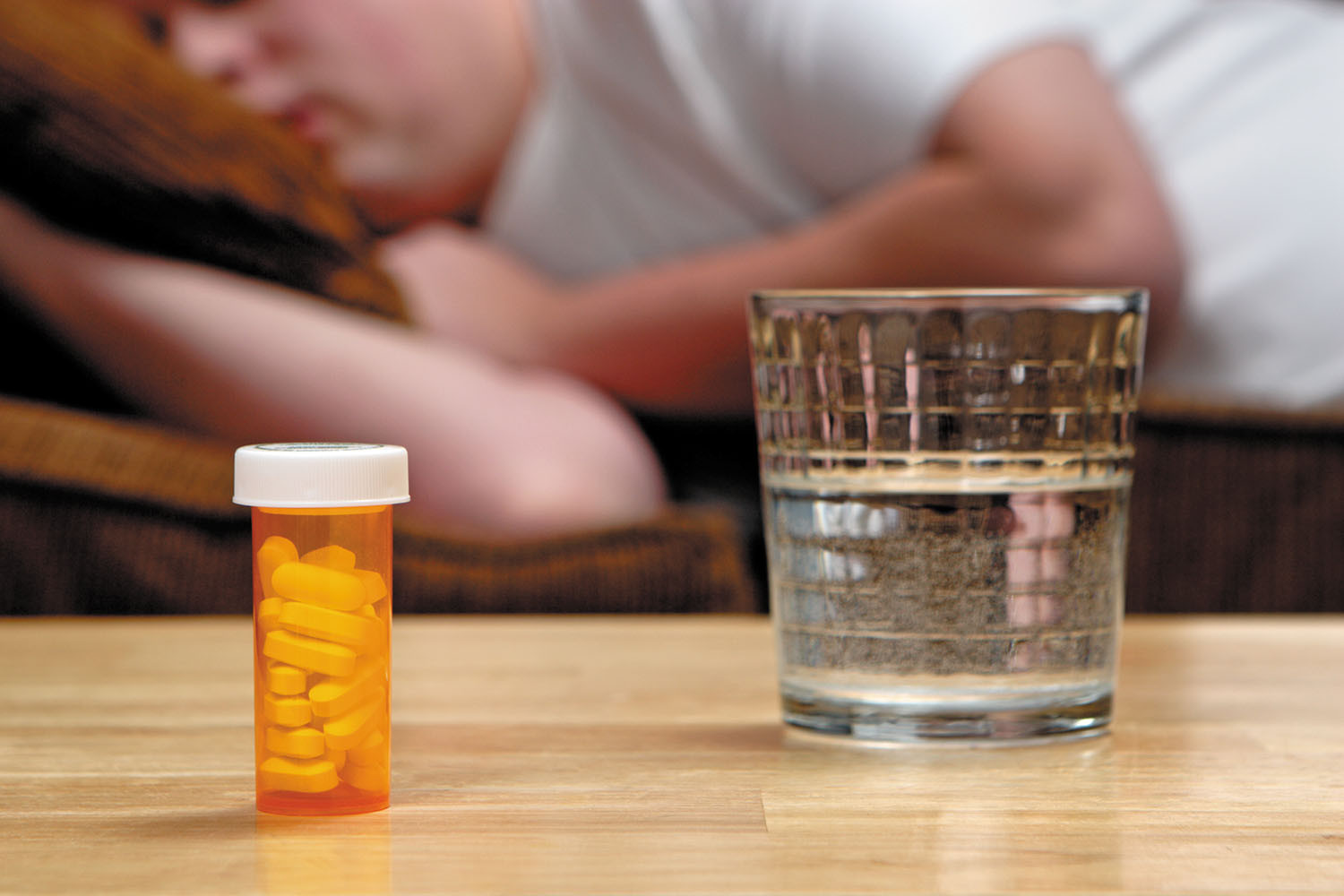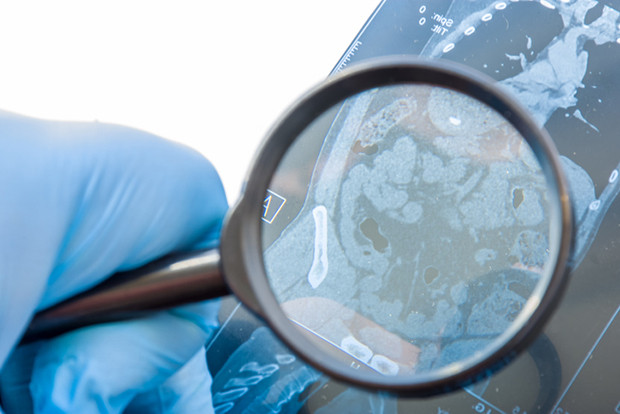
5 timeless habits for better health

What are the symptoms of prostate cancer?

Is your breakfast cereal healthy?

When pain signals an emergency: Symptoms you should never ignore

Does exercise give you energy?

Acupuncture for pain relief: How it works and what to expect

How to avoid jet lag: Tips for staying alert when you travel

Biofeedback therapy: How it works and how it can help relieve pain

Best vitamins and minerals for energy

Should you take probiotics with antibiotics?
Medications Archive
Articles
Did my diet cause my gout?
Ask the doctors
Q. I eat a lot of shellfish and recently developed gout in my knee. Did my diet cause the condition?
A. As you probably know, gout is a painful form of arthritis that occurs when high levels of a waste product called uric acid build up in the body. It can settle into joints, where it forms sharp crystals that can trigger inflammation, redness, and pain. Your diet may have aggravated the condition, but didn't cause it.
Are drugstore sleep aids safe?
Observe these caveats if you use over-the-counter drugs or dietary supplements to help you sleep.
Image: © Spauln/Getty Images
It's 2 a.m. and you can't sleep. Is it okay to take a nonprescription remedy? "They're not meant for the long term, but it may be okay for an occasional night of problems with sleep," says sleep expert Dr. Lawrence Epstein, an instructor in medicine at Harvard Medical School.
But which option should you reach for? Drugstore shelves are lined with a dizzying array of products promising a good night's sleep. They fall into two categories: nonprescription medications and dietary supplements.
Do generic drugs compromise on quality?
A new study raises questions about whether they're truly equivalent to the brand-name versions.
You've no doubt seen them in the grocery store — typically drab-looking packages on the bottom shelf containing lower-priced generic versions of popular brand-name products. Some shoppers look at them with skepticism: Are they really as good? Or does cheaper just mean lower quality?
Many people have the same questions about generic prescription medications, says Dr. Niteesh K. Choudhry, professor of medicine at Harvard Medical School and executive director of the Center for Healthcare Delivery Sciences at Brigham and Women's Hospital. Are generic drugs really the same quality, or is it better to spend more for the name-brand version?
When to expect results from a new medication
Each one can have a different timetable. Find out in advance what you should expect, and then track your symptoms.
Image: © Digital Vision/Getty Images
When your doctor prescribes a new medication, you may expect to start feeling the effects right away. But some drugs can take time to make a difference. "It depends on how quickly your body absorbs the medication, how your body distributes it, and how your body breaks down or metabolizes it," says Laura Carr, a pharmacist at Harvard-affiliated Massachusetts General Hospital.
Giving it time
Some medications start working on the first day. These include drugs that treat high blood pressure, like the beta blocker metoprolol (Toprol, Lopressor), which slows down the heart and reduces the force of its contractions; or H2 blockers such as famotidine (Pepcid) and ranitidine (Zantac), which treat heartburn by blocking the stomach's acid-secreting cells from making acid.
What is labile hypertension?
Ask the doctor
Image: © LordHenriVoton/Getty Images
Q. I have high blood pressure and have been checking my blood pressure more often since my doctor added another drug. But lately, my readings have been all over the place. For example, one morning it was 127/70, but then it was 170/100 in the late afternoon. What's going on?
A. You may have a condition known as labile hypertension, which refers to blood pressure that fluctuates far more than usual. Everyone's blood pressure rises and falls many times during the course of a single day, sometimes even within minutes. Many factors contribute to these changes, including physical activity, emotion, body position, diet (especially salt and alcohol intake), and sleep deprivation. However, there is no clear definition or standard criteria to distinguish between normal and abnormal fluctuations.
Defend yourself from diverticulitis
Adequate fiber can protect against this painful colon condition.
Image: Shidlovski/Getty Images
About half of Americans ages 60 to 80 have diverticulosis, a condition in which pea-sized pouches, called diverticula, bulge outward from the colon. After age 80, almost everyone has it.
Most of the time the pouches don't cause any problems, but if the diverticula become inflamed or infected, the result is diverticulitis, which produces symptoms like fever, nausea, vomiting, and pain or tenderness in the lower abdomen. It's unclear why this happens, but it's generally thought that the pouches become infected after stool or bacteria get caught in them.
Treating heart attacks: Changes from Eisenhower’s era to the present day
In the 1950s, doctors offered mainly morphine and bed rest — a far cry from the many procedures and medications provided today.
During a round of golf one autumn afternoon in 1955, President Dwight Eisenhower experienced what he assumed was indigestion. After he awoke at 2 a.m. the following morning with severe chest pain, his personal physician administered several shots of morphine. It wasn't until 1 p.m. that afternoon that an electrocardiogram revealed that the president had experienced a heart attack.
Cardiologist Dr. Thomas Lee, professor of medicine at Harvard Medical School, detailed Eisenhower's experience in the Oct. 29, 2020, issue of The New England Journal of Medicine. His piece focuses mainly on how Eisenhower's cardiologist, Paul Dudley White, communicated the event to the public. As Dr. Lee wrote, "Heart attacks became less mysterious and frightening to millions of Americans that day."
Can taking aspirin regularly help prevent breast cancer?
Experts say there's little evidence that low-dose aspirin therapy brings benefits, and there are some risks.
In recent years, there's been a lot of talk about the potential benefits, and risks, of a regular regimen of low-dose aspirin. While much of the discussion has centered on whether taking low-dose aspirin can head off cardiovascular disease, some of the focus has also been on breast cancer. Can regular doses of this over-the-counter pain reliever reduce your risk of this common cancer?
For a while there were hints that the evidence was leaning that way. Back in 2017, this area of research, while still inconclusive, was somewhat promising. For example, a 2017 study published in Breast Cancer Research found that among some 57,000 women, those who reported taking low-dose aspirin (81 mg) at least three times a week had a 16% lower risk of breast cancer over all and a 20% lower risk of a specific type of hormonally driven breast cancer.
Don’t delay cancer treatment during the pandemic
News briefs
The pandemic may have you feeling reluctant to seek medical treatment. But when it comes to cancer care, even a short delay in treatment may lead to deadly outcomes, according to a review of 34 studies published online Nov. 4, 2020, by BMJ. Researchers evaluated treatment delay and survival in more than a million people who had cancer of the bladder, breast, colon, rectum, lung, cervix, or head and neck. Each four-week delay in treatment — whether surgery, radiation therapy, or medication (such as chemotherapy or immunotherapy) — was associated with an increase of 6% to 8% in the likelihood of dying during the study period. Scientists say delays of up to eight weeks and 12 weeks further increased the risk of death. For example, in women who delayed breast cancer surgery by eight weeks, there was a 17% increased death risk; women who delayed surgery by 12 weeks had a 26% increase. Keep in mind, there are lots of unavoidable reasons why cancer treatment might be delayed, such as not being strong enough to undergo procedures or scheduling issues at a treatment center. But if there isn't a good reason to delay, it's best to get treatment as soon as possible.
Image: FG Trade/Getty Images
Novel diabetes drug may help people with heart failure, kidney disease
Research we're watching
A unique diabetes drug shows heart-related benefits in people with diabetes who also have recently worsening heart failure or kidney disease, according to two new studies.
The drug, sotagliflozin (Zynquista), belongs to a class of drugs called SGLT2 inhibitors, which cause the kidneys to release more sugar into the urine. The drug is also an SGLT1 inhibitor, meaning it decreases sugar absorption in the intestines. This dual action lowers high blood sugar, the hallmark of diabetes. In people with kidney disease, sotagliflozin lowered the total number of deaths from cardiovascular disease and hospitalizations and urgent visits for heart failure by about 26% compared with a placebo. In a second study, which included people with recently worsening heart failure, those taking the drug had a 33% decrease in those same heart-related measures compared with a placebo.

5 timeless habits for better health

What are the symptoms of prostate cancer?

Is your breakfast cereal healthy?

When pain signals an emergency: Symptoms you should never ignore

Does exercise give you energy?

Acupuncture for pain relief: How it works and what to expect

How to avoid jet lag: Tips for staying alert when you travel

Biofeedback therapy: How it works and how it can help relieve pain

Best vitamins and minerals for energy

Should you take probiotics with antibiotics?
Free Healthbeat Signup
Get the latest in health news delivered to your inbox!
Sign Up











